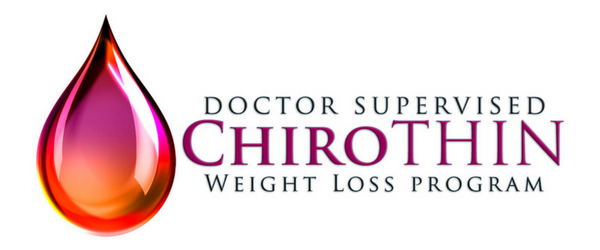
Intermittent fasting is one of those popular diets that comes and goes in waves. Many people tout the benefits of fasting and how it’s improved their overall wellbeing (not to mention their health).
People who have tried dieting in the past may wonder whether or not intermittent fasting is going to help them. Is it just a starvation diet? What’s the science behind intermittent fasting that makes it so effective for so many people?
We’re here to talk about it so you can determine if intermittent fasting is a good option for you. Read on to learn more.
What Is Intermittent Fasting?
Intermittent fasting is a diet that doesn’t limit the foods you eat but does limit when you can eat them. There are several styles of intermittent fasting that determine when your “eating window” will be.
Some people choose to do the OMAD (one meal a day) intermittent fasting diet. This means that they fast all day aside from a single meal (often dinner). That meal can be as large as you want it to be.
Other people choose windows of time when they’re “allowed” to eat. The popular 16/8 method will have you fasting for 16 hours per day and eating during the extra eight hours. This is a convenient schedule for most people because you could, in theory, eat regular meals during this period.
Some people try the 5:2 diet, though there’s less information about the effectiveness of this type of intermittent fasting. You’ll eat normally for five days and then reduce your calorie intake below your basal metabolic rate for the extra two.
There are also more intense fasting diets that will have you eating your normal diet every other day and fasting completely on the remaining days.
This is only a small selection. You need to find the right intermittent fasting schedule that you’re able to maintain.
How Does Intermittent Fasting Work?
So why is intermittent fasting so effective?
By default, intermittent fasting will (usually) mean that you’re eating fewer calories every day. If you’re doing it on and off, you’ll eat fewer calories every week.
Cutting 500 calories per day can cause you to lose up to 1 lb per week. You don’t need to reduce your calories this much for steady weight loss, especially if you’re also living an active lifestyle, but you must cut calories somewhat to lose weight.
Most people live sedentary lifestyles. It’s common to stay up late and wake up early. That gives you plenty of time to mindlessly snack. Our bodies weren’t meant to eat all day.
When you fast, your body burns through its sugar and carbohydrate stores and begins to burn fat instead. The longer you go without eating, the more fat your body will burn.
What Are the Benefits of Intermittent Fasting?
The most obvious benefit of intermittent fasting is weight loss. Again, when you eat fewer calories, you will lose weight. With this in mind, research suggests that there are other benefits of intermittent fasting as well.
People report that intermittent fasting has helped with their cognitive abilities and reduced brain fog. It can help boost your working memory.
You’ll lower your chance of diabetes and heart disease. You may have a lower resting heart rate and lower blood pressure.
What Foods Can You Eat While Intermittent Fasting?
With most diets, you’re limited in what you can eat. You may have to reduce your carbs, your sugar, and most of the other things that you enjoy. While this works for some people, it’s not sustainable for everyone.
One of the benefits of intermittent fasting is that you’re able to eat anything you want (within reason) as long as you don’t eat outside of the fasting period.
Most people are unable to eat “too many” calories during their non-fasting period. This means that you can enjoy all of your favorite foods in moderation and you should feel full before you go overboard.
That said, it’s always best to eat nutrient-dense foods instead of your favorite junk foods for the majority of your diet. You’ll get more out of intermittent fasting if you eat healthily.
During your fast, you can’t eat anything. You can drink water and black coffee.
Is Intermittent Fasting Appropriate for Everyone?
Intermittent fasting is a good option for most people, but it’s not right for everyone.
If you’re pregnant or breastfeeding, intermittent fasting may not be right for you. Always consult with a doctor before starting any new diet while you’re pregnant.
People with a history of restrictive or binge eating disorders should avoid intermittent fasting. Fasting may trigger those disorders.
If you already have diabetes, you should not try intermittent fasting unless you’ve been given explicit permission from your doctor.
How Can You Make Intermittent Fasting More Effective?
While intermittent fasting is effective on its own, you’ll get more out of it if you also incorporate other elements of a healthy lifestyle.
Intermittent fasting has shown great results for people who do strength training. People lose fat without losing too much muscle mass, which allows them to “tone up.”
If you eat a balanced diet full of protein and healthy fats, you’ll be able to reach your body composition goals faster.
It’s helpful to work with a nutritionist and follow a weight loss program, like ChiroThin. ChiroThin can work on its own or you can combine it with other types of diets, like intermittent fasting. You’ll see a doctor every week to make sure that you’re making progress and that everything is safe.
Intermittent Fasting Is One of the Most Popular Diets
If you’ve tried other popular diets without success, it might be time to try intermittent fasting. You can still eat all of the foods that you love (in moderation), just in a limited timeframe.
Are you ready to get started on the path to a healthier you? Click here to find a ChiroThin doctor in your area.
